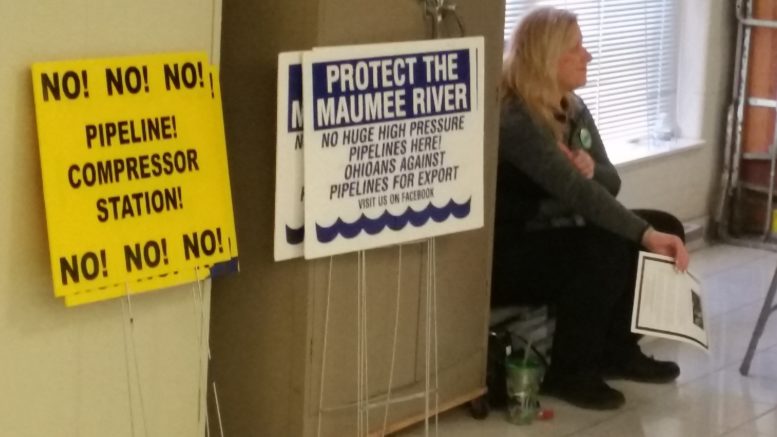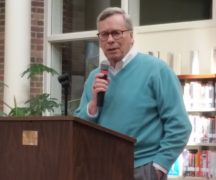By JAN LARSON McLAUGHLIN
BG Independent News
For months now, Bowling Green officials have listened to opposing sides of the Nexus pipeline. Mayor Dick Edwards has been particularly frustrated by the conflicting “science” being presented on both sides of the issue.
So in an effort to find the facts about the potential risk of the pipeline on Bowling Green’s water treatment plant, the mayor is bringing together a panel of experts on the topic.
The panel discussion on the natural gas pipeline and its potential impact on the city’s water source will be held May 8, beginning at 4 p.m., in the council chamber, 304 N. Church St.
The discussion will not focus on whether or not the pipeline should be constructed, but whether it poses risks to the city’s water treatment plant, Edwards said.
“I want to really focus in on the water treatment plant and the geology,” the mayor said.
Edwards is also hoping that any concerns that need to be thoroughly explored are identified during the panel discussion, so the city can notify the Federal Energy Regulatory Commission of the issues.
“I’m not naïve that a lot of people are concerned about pipelines in general,” the mayor said. But the panel discussion will focus on the proximity of the pipeline to the water plant.
The panel will consist of Dr. Charles Onasch, retired professor emeritus of geology at BGSU; Dr. Andrew Kear, assistant professor of political science and environment and sustainability at BGSU; Mark Baranoski, retired geologist with the Ohio Department of Natural Resources; and Stephen Champa, a senior hygrologist for Eagon & Associates. Steve Kendall, from WBGU and host of the Northwest Ohio Journal, will act as moderator.
“They are all committed to the science,” Edwards said of the panelists. “We’re just trying to get a better understanding. We know we cannot dismiss the need for natural gas in the future.”
But city officials need to know if the pipeline poses a threat to city water.
“It would be wonderful, in the best of all worlds, if it were traveling a different route,” he said. But since the pipeline route is near the plant, the city needs to be aware of potential problems so officials can raise red flags to FERC.
“We’ve taken this very seriously right from the very beginning,” Edwards said.
The mayor said he finds it curious that the Ohio Environmental Protection Agency has not spoken out on the pipeline. The Ohio EPA monitors the city’s water treatment plant and requires all types of inspections and tests.
“I find it interesting, and somewhat ironical,” he said. “The Ohio EPA has yet to register any type of concern.”
City Council members and Edwards will ask questions of the panelists. Residents are welcome to submit questions regarding the science of this issue to the mayor’s office or to their elected representatives on City Council. Questions are encouraged to be emailed or submitted no later than 4 p.m. on May 4.
The mayor wants citizens to have their questions answered, but in an effort to keep the discussion orderly, the questions will be asked by elected officials.
“It’s important for the elected representatives of the citizens to ask the questions,” Edwards said.




